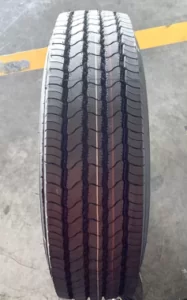Selecting the light duty truck tires is essential for ensuring safety, optimal performance, and long-term durability. Whether your truck is used for daily commuting, transporting heavy loads, or embarking on off-road journeys, the appropriate light duty truck tires can greatly improve your driving experience. This guide will walk you through the key considerations and options to help you make an informed decision.
Understanding Frideric Tire Light Duty Truck Tires Basics
Before diving into specific tire types and features, it’s essential to understand some fundamental tire concepts:
- Tire Size: The size of your light duty trailer tires is indicated by a series of numbers and letters on the sidewall. For example, 255/70R22.5. This code provides information about the tire’s width, aspect ratio, construction type, and diameter. Ensure that any tire you choose matches the specifications recommended by your vehicle manufacturer.
- Load Index and Speed Rating: The load index indicates the maximum weight a tire can support, while the speed rating specifies the maximum speed the tire can safely handle. Both of these should align with your truck’s requirements and usage patterns.
- Tread Patterns: Tread patterns affect traction, handling, and noise. Common patterns include symmetrical, asymmetrical, and directional. Each type offers different benefits depending on your light duty truck tires driving conditions.
Types of Heavy Duty Light Truck Tires
Heavy duty light truck tires come in various types, each designed for specific purposes. Understanding these types can help you choose the best tire for your needs.
All-Season Tires
All-season tires are designed to provide balanced performance in various conditions, including dry, wet, and light snow. They offer a good compromise between durability, comfort, and traction. If you primarily use your truck for city and highway driving, all-season tires are a solid choice.
Advantage:
1.Versatile performance in different weather conditions.
2.Longer tread life compared to specialized tires.
3.Comfortable ride quality.
Shortcoming:
1.Limited performance in severe off-road conditions.
2.Not ideal for extreme winter weather.
All-Terrain Tires
All-terrain (AT) tires are built for drivers who need a balance between on-road comfort and off-road capability. They feature more aggressive tread patterns and reinforced sidewalls, making them suitable for light off-roading while still providing decent highway performance.
Advantage:
1.Enhanced traction on various terrains, including dirt, gravel, and light mud.
2.Durable construction with reinforced sidewalls.
3.Good on-road performance for everyday driving.
Shortcoming:
1.Increased road noise compared to all-season tires.
2.Shorter tread life due to the more aggressive tread pattern.
Mud-Terrain Tires
Mud-terrain (MT) tires are designed for off-road enthusiasts who frequently tackle challenging terrains such as deep mud, rocks, and sand. These tires have large, chunky tread blocks and deep voids to maximize traction in tough conditions.
Advantage:
1.Superior off-road traction in extreme conditions.
2.Tough and durable construction to withstand rough terrain.
3.Aggressive appearance.
Shortcoming:
1.Noisy and less comfortable on paved roads.
2.Shorter tread life and lower fuel efficiency.
3.Poor performance on wet and icy surfaces.
Highway Tires
Highway (HT) tires are optimized for long-distance, high-speed travel on paved roads. They offer a smooth, quiet ride with excellent fuel efficiency. These tires are ideal for trucks primarily used for commuting and long highway drives.
Advantage:
1.Quiet and comfortable ride on paved roads.
2.Improved fuel efficiency.
3.Long tread life.
Shortcoming:
1.Limited off-road capability.
2.Not suitable for severe weather conditions.
Winter Tires
Winter tires are specifically designed for cold weather and snowy or icy conditions. They are made from a special rubber compound that remains flexible at low temperatures, and their tread patterns are optimized for maximum grip on snow and ice.
Advantage:
1.Exceptional traction and handling in winter conditions.
2.Improved braking performance on ice and snow.
3.Safer driving in cold climates.
Shortcoming:
1.Faster tread wear in warm weather.
2.Noisy and less efficient on dry roads.
3.Seasonal use only; require storage when not in use.
FRIDERIC tire brand light duty truck tires have a variety of pattern options according to different road surfaces and climates.

Understanding Truck Bus Tires
Different Types of Truck Bus Tires
When it comes to truck and bus tires, there are three primary types to consider: steer tires, drive tires, and trailer tires.
1.Steer Tires:
Steer tires are specifically designed for the front axle of a truck or bus. They play a critical role in steering, handling, and ensuring stability on the road. These tires are engineered to provide excellent traction and responsive steering, allowing for precise control and maneuverability.
2.Drive Tires:
Drive tires are installed on the powered axle of a truck or bus, providing the necessary traction to propel the vehicle forward. These tires are designed to deliver exceptional grip and traction on various road surfaces, including wet or slippery conditions. Drive tires are built to withstand the torque and power generated by the engine, ensuring efficient acceleration and braking.
3.Trailer Tires:
Trailer tires are specifically designed for the non-powered axles of trailers or semi-trailers. They are responsible for supporting the weight of the cargo and providing stability during towing. These tires are engineered to have excellent load-carrying capacity and durability. They are designed to endure prolonged highway use and to withstand the demands of heavy loads.
Key Features and Specifications to Consider
When choosing truck bus tires, it’s important to consider several key features and specifications to ensure optimal performance and safety:
1.Load Capacity and Load Index:
The load capacity of a tire refers to the maximum weight it can safely carry. It is crucial to select tires with an adequate load capacity to support the weight of your truck or bus, accounting for the maximum load it may carry. The load index, indicated on the tire sidewall, provides a numerical value that corresponds to the tire’s load-carrying capacity.
2.Speed Rating:
The speed rating indicates the maximum speed at which the tire can safely operate. It is denoted by a letter code on the sidewall. It’s important to select tires with a speed rating that meets or exceeds the vehicle’s top speed capability to ensure safe operation.
3.Tread Pattern and Design:
The tread pattern and design greatly influence the tire’s traction, handling, and performance in different road conditions. Tread patterns can vary, including ribbed, lug, or block patterns. Consider the typical road surfaces and weather conditions you will encounter to choose a tread pattern that offers the desired level of grip, traction, and water dispersion capabilities.
4.Tire Size and Aspect Ratio:
Tire size refers to the dimensions of the tire, typically expressed as a series of numbers on the sidewall (e.g., 295/75R22.5). The first number represents the tire width, the second number denotes the aspect ratio (the tire’s height as a percentage of its width), and the last number indicates the wheel diameter. Ensure that the tire size is compatible with your vehicle’s specifications and recommended sizes.
5.Construction Type (Bias or Radial):
Tires can be constructed using a bias or radial design. Bias-ply tires have layers of cords that crisscross at an angle, providing robust sidewall strength and durability. Radial tires have cords that run perpendicular to the direction of travel, offering a smoother ride, better fuel efficiency, and improved heat dissipation. Consider your specific needs and preferences when choosing between bias or radial tires.
6.Traction and Grip Performance:
The traction and grip performance of a tire determine its ability to maintain control and stability on different road surfaces. Look for tires with features like advanced rubber compounds, siping (small slits on the tread blocks), and innovative tread designs that enhance traction and grip, especially in wet, snowy, or off-road conditions.
II.Frideric truck and bus tyres overview
Frideric tire brand introduction:
Frideric is a well-known tire brand that specializes in manufacturing high-quality tires for commercial trucks and buses. With a strong presence in the market, Frideric is recognized for its excellence and reliable performance. The brand has a long history of delivering durable and performance-driven tires that meet the stringent requirements of the commercial transportation industry.
Frideric’s commitment to quality and innovation:
Frideric places great emphasis on quality and innovation in tire manufacturing. The brand is committed to advanced research and development, incorporating cutting-edge technology and materials into its tire production process. By prioritizing quality-controlled production, Frideric ensures its tires have excellent performance, longevity and road safety. 100+ professional engineers in Hugerubber R&D Team, 28+ of Hugerubber PEs are senior engineers, 10+ years of work experience for R&D work, use high quality materials to produce. Frideric FA808 FA606 these two products have excellent designs and are very popular overseas.
Key Considerations for Choosing Tires-Frideric Tire
When selecting light duty trailer tires for your light-duty truck, consider the following factors to ensure you make the best choice for your needs:
Driving Conditions
Assess the typical conditions you’ll be driving in. If you frequently encounter snow and ice, winter tires are essential. For off-road adventures, mud-terrain or all-terrain tires are more suitable. If your driving is mostly on highways, highway tires will offer the best performance.
Load Capacity
Ensure the tires you choose can support the weight of your truck and any cargo you plan to carry. Check the load index rating and compare it with your truck’s specifications to avoid overloading the tires, which can lead to premature wear and potential safety hazards.
Tread Life
Consider the expected tread life of the tires. Some tires, like all-season and highway tires, typically offer longer tread life compared to mud-terrain and winter tires. If you drive long distances regularly, investing in tires with a longer tread life can be more cost-effective.
Fuel Efficiency
Tires can impact your truck’s fuel efficiency. Generally, all-season and highway tires offer better fuel economy due to their lower rolling resistance. If fuel efficiency is a priority, opt for tires designed with this in mind.
Comfort and Noise
Tire noise and ride comfort are important factors, especially if you spend a lot of time on the road. All-season and highway tires provide a smoother and quieter ride compared to the more aggressive tread patterns of all-terrain and mud-terrain tires.
Budget
Your budget will play a significant role in your tire selection. While high-quality tires can be more expensive upfront, they often provide better performance, safety, and longevity. Consider the overall value rather than just the initial cost.
Conclusion
Choosing the right tires for your light-duty truck involves careful consideration of your driving habits, conditions, and specific needs. By understanding the different types of tires available and their respective advantages and disadvantages, you can make an informed decision that enhances your truck’s performance, safety, and comfort.
When choose light duty truck tires for sale,Remember to regularly check your tire pressure, rotate your tires, and inspect them for wear and damage to ensure they remain in optimal condition. Investing in the right tires and maintaining them properly will provide you with a safer and more enjoyable driving experience.





